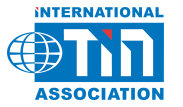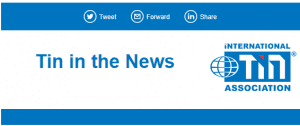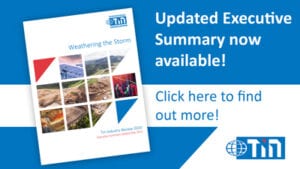Indonesia’s state-controlled tin producer PT Timah said that it would ship some 1,500 tonnes of tin this month and was aiming for annual exports of 25,000 tonnes, down from 28,000 tonnes in 2012. Its President Director Sukrisno told Reuters that he hoped that other Indonesian producers could use Timah as a channel to comply with the new export regulation that requires all tin metal exports to be made via a local exchange.
“We are still producing” he said, noting that the company has a stock capacity of more than 5,000 tonnes and inventories were likely to hit 3,500 tonnes by the end of September. Timah supports the new regulations requiring the export of higher purity tin and is hopeful that business can be funnelled through the Indonesian Commodity and Derivatives Exchange (ICDX). “If all the production sells in a domestic exchange, the prices will increase,” Sukrisno said, predicting a rise to up to $28,000/tonne by the end of the year. Smaller producers are being urged to sign smelting agreements or sell ore direct to Timah, which has annual smelting capacity of 70,000 tpy. However, other local tin producers had yet to approach the state company, despite a sales formula being devised, Sukrisno said.
In report by Bloomberg Timah Corporate Secretary Agung Nugroho forecast total Indonesian exports of 3,000 tonnes this month, including about 400 tonnes of ingots that have been traded through the ICDX and about 2,600 tonnes of other tin products such as solder. Tin products are exempt from the exchange trading requirement until January 2015. The volume traded on the ICDX since 30 August now amounts to 675 tonnes.
Earlier this week Indonesian trade minister Gita Wirjawan told Bloomberg that the new export regulation would not be changed. “We have to see this policy in a long-term context that is for us to be able to increase value-added products domestically,” said Wirjawan. “We are the second-biggest producer in the world and biggest exporter in the world, we have to use a reference price that is determined in Indonesia, not another place,” he said. “We are keeping this policy for a while.”


